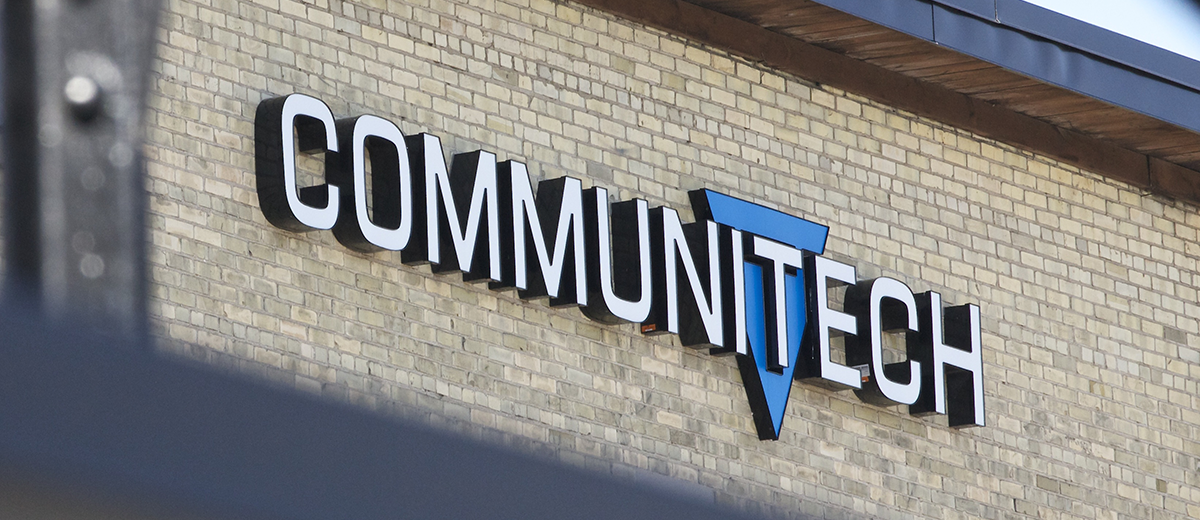
Monday 14 Sep 2015
Communitech helps enterprise companies innovate
Lean and nimble. Small and agile.
These are just a few of the words you might use to describe innovative companies. Housed in small startups are disruptive ideas ready to shake up the way business is done across industries. But take a peek behind the scene at Communitech, Waterloo Region's innovation hub and long-time Fluxible sponsor, and you'll see that's about to change.
"We're starting to see enterprise companies experience that aha moment of 'innovate or die'", says Communitech's Kayleigh Platz. Innovation's not just for technology companies — it's about changing the way business is done, no matter the business. To that end, all companies are technology companies, and Communitech's supporting these larger enterprises as they change course.
We stopped by the hub to learn more about how they are doing that in their new Innovation Lab. Here's a bit of our conversation.
Q: How did Communitech come to start supporting enterprise companies?
Kayleigh: Our motto has always been to support all technology companies, not just small ones, so when Canadian Tire approached us, we were open to the idea. They originally didn't think of themselves as a tech company, as they sold tires and fishing gear. But then they watched Amazon, known as a technology company, quickly become a competitor, as they were selling tires and fishing gear. That got them thinking that maybe being innovative isn't just about selling better tires, but more about selling tires, better. They then became the Innovation Lab's first tenant and we're now operating at full capacity.
Q: What are some of the ways the Innovation Lab itself helps foster innovation?
Kayleigh: The design of the physical workspace is key when we talk about cultivating ideas and new ways of thinking. To start, there are no walls. And even things that look like walls, like space dividers, are glass so there is a lot of transparency and accessibility.
The idea is that innovation should make you uncomfortable.
You need to push outside of your comfort zone, outside the traditional ways of thinking and working. The more open a space is, the more open you might be to new ideas and relationships.
We also hold a number of social events on a regular basis for all of our tenants. At first glance it might seem like just a party, but if you watch carefully, it's actually more about providing a space for organizations to "collide" — when seemingly unrelated companies learn about each other, that's when the magic happens.
Q: So, how does a large company start working like a small company?
Kayleigh: There are a couple of things we recommend to our tenants in the Innovation Lab. First is that they work in 4 month sprints. That means that all of their project work needs to wrap up within that time period — no more long, drawn out cycles. The faster you can turn an idea around the quicker you can move on to improve it.
We also suggest a small working team structure. Rather than a large org chart, these groups are limited to a small project team, lead by an activator. The activator should be an outside hire so they aren't bogged down by the existing "think" culture and processes in that company. Typically they have startup and corporate experience and are responsible for building out a core team of developers and designers. It's amazing what can be accomplished quickly with a dynamic team like this.
A big thanks to Communitech for sponsoring Fluxible again this year. Thank you!